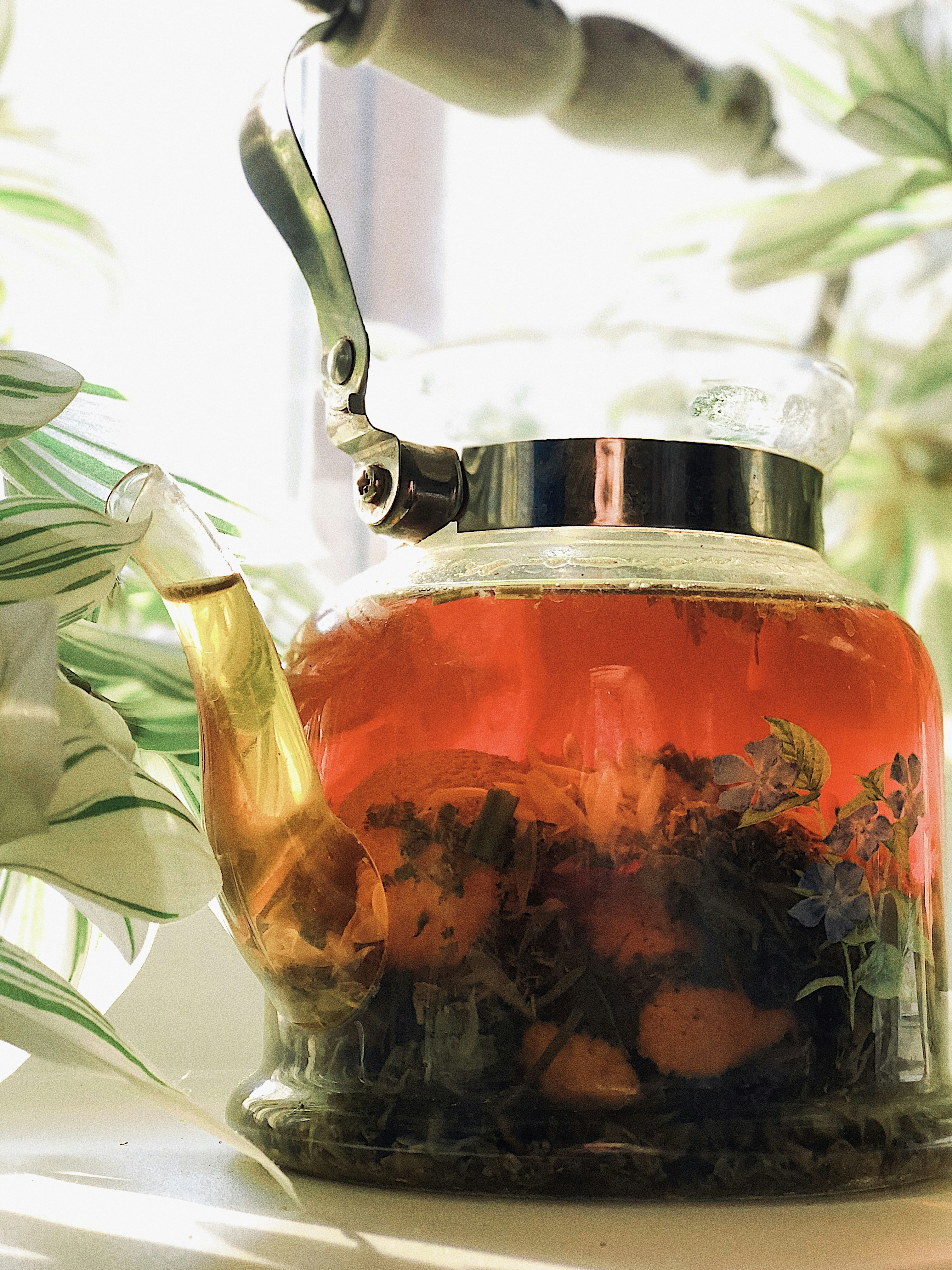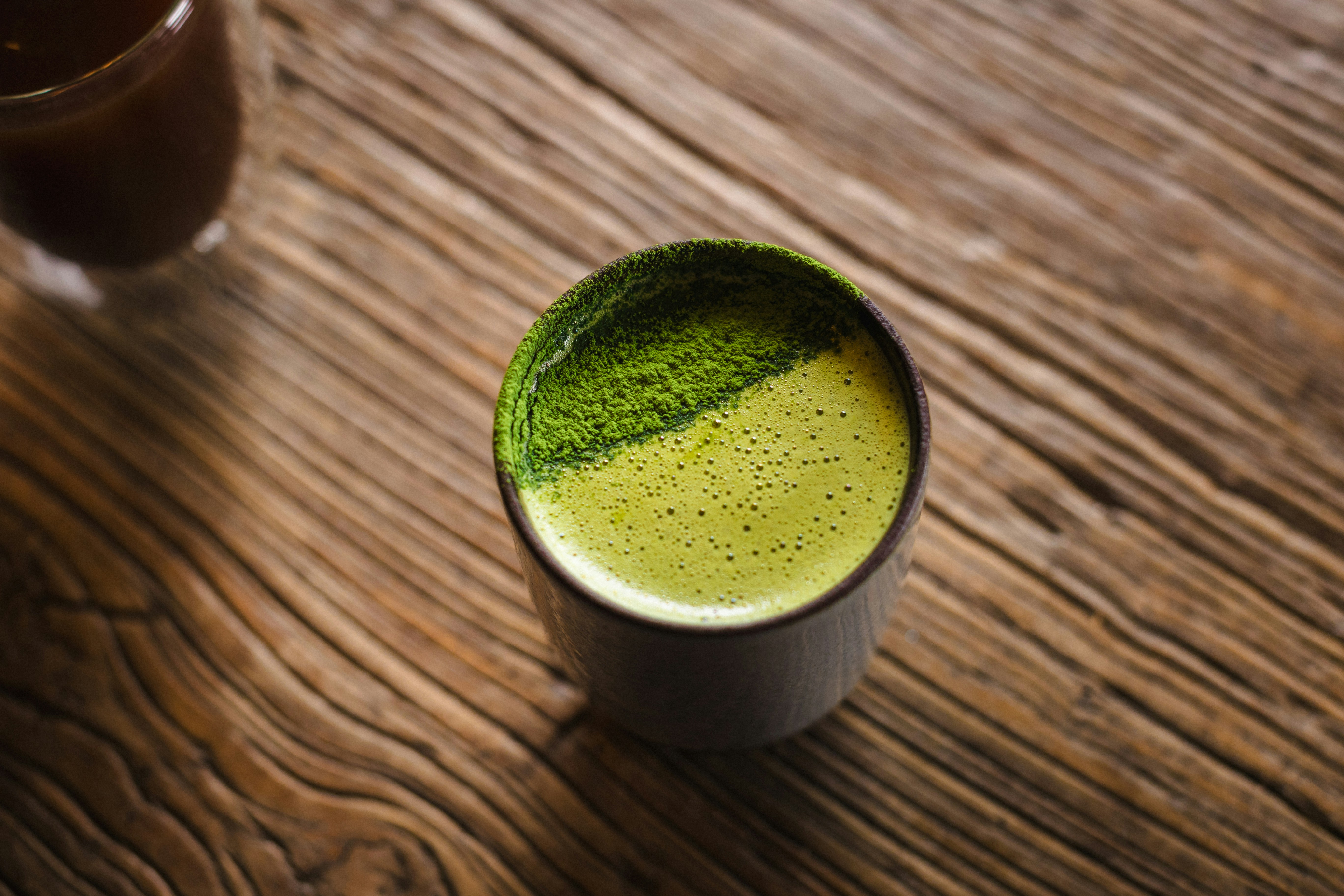The Power of Tea: A Calming Ritual for Modern Life
In today’s fast-paced society, tea transcends its role as a mere beverage; it has evolved into a comforting ritual, a source of solace for many during times of stress or sadness. The simple act of sipping tea can evoke feelings of calmness and relaxation, profoundly impacting an individual’s mood. This ancient beverage, steeped in rich tradition, has been cherished across diverse cultures not only for its delightful flavors but also for its perceived therapeutic effects. Recent scientific studies indicate that tea contains specific compounds that can positively influence psychological well-being, solidifying the tangible connection between tea and mood regulation.
As individuals navigate the daily pressures of modern life, the preparation and consumption of tea often become a mindful practice, encouraging a much-needed pause for reflection and self-connection. Whether it’s the warm embrace of a chamomile infusion soothing frayed nerves after a long day or the invigorating properties of green tea sharpening alertness, each type of tea seems to possess unique qualities capable of affecting emotional states. This intricate relationship between tea and mood underscores the profound power held within this humble leaf.
Furthermore, the social dimension of tea drinking should not be underestimated. Sharing a pot of tea with loved ones nurtures a sense of community and connection. These shared moments often lead to positive emotional exchanges, reinforcing the importance of tea in enhancing mood and fortifying relationships. The communal experience of enjoying tea can alleviate feelings of loneliness and isolation, providing comfort and support while strengthening social bonds. In light of these insights, we can begin to appreciate tea’s complex role in shaping our emotional landscape, prompting a deeper exploration of its effects on mood throughout this comprehensive blog post.
The Global Tradition of Tea: From Rituals to Relationships
Tea has long been an integral part of cultures worldwide, transcending its function as a mere beverage to become a cornerstone of social rituals and community bonding. In Japan, the time-honored tea ceremony, known as Chanoyu, embodies this cultural significance. This ceremony is not simply about drinking tea; it represents a profound journey of aesthetics and manners, emphasizing harmony, respect, purity, and tranquility. Participants engage in a meditative process, meticulously preparing and savoring matcha, a finely powdered green tea. The careful attention to detail fosters a sense of mindfulness, positively influencing mood and encouraging a deep connection among participants.
In contrast, Africa boasts a rich tapestry of tea traditions, particularly within groups like the Berbers, who prepare a highly ceremonial Moroccan mint tea. This invigorating brew, often sweetened and infused with fresh mint, is customarily offered to guests as a symbol of hospitality. The act of preparing and serving tea in these communities is steeped in tradition, symbolizing friendship, reinforcing social identity, and strengthening bonds between individuals, ultimately enhancing their overall mood. For many, sharing a cup of tea represents a respite from the demands of daily life, reinforcing social bonds and fostering a sense of belonging within the community.
Similarly, in the Middle East, the preparation and consumption of tea, such as the fragrant Persian saffron tea, often accompany gatherings and mark significant life events, from joyous celebrations to solemn moments of mourning. These shared experiences underscore the emotional resonance of tea, transforming a seemingly simple drink into a vital cultural cornerstone. It becomes evident that tea plays a pivotal role in facilitating social interactions, influencing emotional states, and shaping the ways communities connect and communicate across diverse cultures.
The Science of Tea and Mood: Exploring the Mood-Boosting Components
Tea has long been revered not only for its exquisite taste but also for its numerous health benefits, particularly its remarkable ability to elevate mood and enhance mental well-being. This uplifting effect can be attributed to a combination of biological and chemical components present in tea, including L-theanine, caffeine, and polyphenols. Each of these elements plays a unique and synergistic role in influencing our mood and cognitive function.
L-theanine, an amino acid primarily found in green tea, is renowned for its calming effects, promoting relaxation without inducing drowsiness. Scientific research has demonstrated that L-theanine increases the levels of key neurotransmitters in the brain, such as serotonin and dopamine, compounds intimately linked to mood regulation. The synergistic interaction between L-theanine and caffeine can enhance cognitive performance while mitigating the jittery effects often associated with caffeine consumption. This harmonious combination allows individuals to experience a state of alert calmness, fostering improved focus and mood stability.
Caffeine, another well-known component of tea, acts as a stimulant that can temporarily heighten alertness and improve mood. It engages the central nervous system to enhance wakefulness and concentration. Moderate caffeine intake has been linked to lower rates of depression and anxiety, further contributing to tea’s well-deserved reputation as a mood-enhancing beverage. However, it is important to approach caffeine consumption with moderation, as excessive intake can lead to undesirable side effects such as restlessness or anxiety.
Polyphenols, a class of potent antioxidants found in various types of tea, also contribute significantly to mood enhancement. These compounds combat oxidative stress and inflammation, factors often associated with mood disorders. Studies suggest that polyphenols may exert neuroprotective effects, potentially shielding brain cells from damage and contributing to improved emotional health and resilience.
In conclusion, the compelling scientific evidence surrounding tea reveals that its mood-boosting effects are multifaceted, with L-theanine, caffeine, and polyphenols working in concert to promote a positive mental state. Understanding the individual and combined effects of these components can encourage individuals to incorporate tea into their daily routines as a natural and enjoyable way to enhance mood and improve overall well-being.
Anecdotal Evidence: Personal Stories of Tea’s Transformative Power
The profound connection between tea and mood is not only supported by rigorous scientific research but also vividly illustrated through countless personal stories. Many individuals have shared their compelling experiences, highlighting the transformative effects of tea on their emotional well-being. One such account comes from Sarah, a busy professional who found herself increasingly overwhelmed by the relentless stresses of work and life. Seeking a moment of respite and tranquility, she turned to chamomile tea, renowned for its calming properties. Within weeks of incorporating this soothing ritual into her daily routine, Sarah reported feeling significantly less anxious and more grounded. Her evenings transformed into a time for peaceful reflection and relaxation, showcasing how the simple act of sipping tea can weave serenity into even the most hectic lifestyle.
Similarly, John, a university student, discovered the mood-enhancing qualities of green tea during the intense pressure of finals week. Facing mounting anxiety and apprehension about his exams, he began incorporating green tea into his study sessions. He not only found that the gentle caffeine boost improved his focus and concentration but also experienced a profound sense of calm that alleviated his stress. John’s experience underscores how tea can serve as a powerful tool for enhancing mental clarity and emotional stability, transforming a potentially daunting and overwhelming period into a more manageable and even enjoyable experience.
Moreover, Emily, a mother of two young children, also found solace and emotional balance in a fragrant hibiscus tea blend. Faced with the daily challenges of parenting, Emily often felt irritable and emotionally drained. After integrating hibiscus tea into her daily routine for a month, she noted a significant shift in her mood and overall well-being. She felt less irritable, more patient, and had a renewed appreciation for the joys of parenting. Emily’s story, along with countless others, emphasizes the potential of tea to dramatically enhance mood and promote mental health. These testimonials underline how integrating tea into daily practices can cultivate conscious consumption and inspire positive change in individuals’ emotional well-being.
Mindfulness and Tea: Cultivating Emotional Balance Through Ritual
The ritual of brewing and savoring tea can be a powerful practice for cultivating mindfulness and achieving emotional balance. Engaging in this tranquil activity allows individuals to disconnect from the chaos of daily life, grounding themselves in the present moment and fostering a sense of calm that can significantly enhance their emotional well-being.
When preparing tea, individuals can fully immerse themselves in the sensory experience—observing the vibrant hues of the tea leaves, inhaling the fragrant aromas, and listening to the gentle gurgle of boiling water. This mindful process engages both the mind and body, creating a sanctuary of serenity that can alleviate stress and anxiety. By focusing on these simple yet profound details, tea drinkers can heighten their emotional awareness, fostering a deeper connection with their inner selves and promoting a sense of presence and groundedness.
Mindful tea rituals can be personalized according to individual preferences. Some may choose to practice a simple gratitude exercise, reflecting on things they appreciate in their lives while their tea steeps. Others might incorporate deep-breathing techniques to further cultivate relaxation as they savor their chosen brew. By weaving these mindful practices into the tea-drinking experience, individuals can foster emotional stability, resilience, and a sense of equilibrium in their daily lives.
Research indicates that consistent mindfulness practices can have a profound impact on emotional regulation, equipping individuals with the tools to navigate life’s challenges with greater resilience and composure. Regularly engaging in tea rituals as a form of mindfulness can contribute to a holistic approach to mental well-being. As the process of brewing and savoring tea becomes a habitual practice, it can serve as a vital anchor during turbulent times, fostering a state of equilibrium and clarity amidst life’s emotional storms.
Tea for Stress Relief: A Gentle and Natural Approach
In recent years, the exploration of herbal teas as a natural means of stress relief has gained considerable attention. A wide variety of herbal teas are celebrated for their calming effects, offering individuals a gentle yet potent method for enhancing mood and promoting relaxation. Two of the most well-known stress-relieving brews include chamomile and lavender tea. Chamomile, with its mild sedative properties, is frequently used to promote relaxation and combat anxiety. Many individuals find that a warm cup of chamomile tea before bedtime helps them unwind and release the tensions accumulated throughout the day.
Similarly, lavender tea is cherished not only for its delightful aroma but also for its remarkable ability to soothe the nervous system. Studies have indicated that the scent and active components in lavender can contribute to stress reduction and promote a sense of tranquility. A cup of lavender tea, especially during moments of heightened stress or anxiety, can serve as an aromatic respite, uplifting the spirit and restoring a sense of balance and calm. Other herbal options, such as passionflower and lemon balm, also deserve recognition for their calming properties, contributing to an overall feeling of peace and well-being.
When selecting herbal teas for stress management, it is essential to consider personal preferences and any potential sensitivities. Some individuals may have specific tastes or reactions to certain herbs, so experimenting with different blends can be beneficial in finding the perfect match. It is always advisable to consult with a healthcare professional, especially if considering using herbal tea as a complement to existing mental health treatments. It is crucial to acknowledge that while herbal teas can be valuable tools in managing mild stress, they should not be considered substitutes for professional help, particularly when addressing severe mental health concerns. Instead, these teas can be a delightful addition to a broader wellness strategy that encompasses proper self-care practices and professional guidance.
Social Connections and Tea: A Shared Experience of Bonding and Well-being
Throughout history, tea has served not only as a refreshing beverage but also as a vital social connector, transcending geographical and cultural boundaries. In many societies around the world, the act of sharing a cup of tea forms the bedrock of social interactions, fostering connections, and strengthening relationships. Whether it’s a formal tea ceremony in Japan or an informal gathering in the British afternoon tea tradition, the communal aspects of tea drinking play a significant role in uplifting our spirits and nurturing a sense of belonging.
Tea drinking rituals, deeply embedded in various cultures, provide invaluable opportunities for individuals to come together and connect over a shared experience. In China, the Gongfu tea ceremony emphasizes the artistry and mindfulness involved in preparing and sharing tea, symbolizing respect for both the beverage itself and one’s guests. Similarly, in Morocco, mint tea serves as a powerful gesture of hospitality and friendship, with the preparation and serving of the tea often becoming a festive occasion that brings family and friends together. These social rituals contribute to emotional well-being by creating a welcoming and inclusive atmosphere that encourages conversation and strengthens relationships.
Personal anecdotes further underscore the mood-enhancing qualities of shared tea experiences. Many individuals cherish memories of gathering with loved ones around a steaming pot of tea, with laughter and meaningful conversations adding depth and warmth to the experience. The simple act of pouring a cup of tea for someone can evoke a sense of care and consideration, transforming an ordinary moment into a cherished memory. Research supports the notion that social connections, like those forged during shared tea time, play a crucial role in enhancing mood, reducing stress, and promoting overall happiness.
Thus, the communal aspect of tea drinking not only strengthens interpersonal relationships but also contributes significantly to improved emotional well-being. By making time for shared tea experiences, individuals can reap the benefits of both connection and mood enhancement, reinforcing the timeless bond that tea has fostered among people across generations and cultures.
Creating Your Own Mood-Enhancing Tea Ritual: A Personalized Journey to Well-being
The practice of creating a personalized tea ritual is a powerful way to nurture not only the body but also mental clarity and emotional well-being. To establish your own mood-enhancing tea ritual, start by selecting the type of tea that resonates with your personal preferences and mood enhancement goals. Herbal teas, such as chamomile or lavender, are renowned for their calming properties and are excellent choices for promoting relaxation. Green tea offers a gentle energy boost and can enhance focus and concentration, while black teas, with their robust flavors, are often associated with feelings of warmth and comfort. Consider exploring a variety of teas to discover which ones best suit your individual needs and preferences.
Once you’ve selected your tea, the brewing process itself becomes an integral part of the ritual. Take the time to boil fresh, cold water and allow it to cool to the optimal temperature for your chosen tea type. For example, green tea generally requires water at around 175°F (80°C), while black tea benefits from freshly boiled water. Steep your tea leaves or tea bags for the appropriate amount of time—typically around three minutes for green tea and five minutes for black tea—to fully extract the flavor and beneficial compounds. This mindful approach encourages you to focus your attention solely on the act of tea preparation, creating a foundation for a truly reflective and enriching experience.
Creating a calming and supportive atmosphere is also crucial for enhancing the mood-boosting effects of your tea ritual. Designate a quiet and serene space in your home where you can enjoy your tea undisturbed. Consider incorporating elements such as soft lighting, a comfortable seating arrangement, and calming music or nature sounds to create a tranquil ambiance. Engaging all your senses can amplify the mood-enhancing benefits of your tea ritual. You might also consider incorporating affirmations or peaceful reflections as you sip your tea, allowing the warmth of the beverage to soothe your spirit and foster a sense of gratitude. Over time, this dedicated practice not only elevates your mood but can also evolve into a cherished daily tradition that nourishes both body and mind.
Conclusion: Sip Your Way to a Better Mood and Enhanced Well-being
In navigating the complexities and challenges of modern life, it’s easy to overlook the simple pleasures that contribute significantly to our emotional and mental well-being. The connection between tea and mood is an intriguing and compelling subject, highlighting how the simple act of sipping tea can bring about remarkable benefits in our daily lives. The diverse world of tea, ranging from soothing chamomile to invigorating green tea, offers a spectrum of flavors and properties, each capable of elevating mood, reducing stress, and promoting a sense of calm and tranquility.
Incorporating tea into your daily routine provides an opportunity for mindful moments of self-care and serves as a natural and accessible remedy for improving overall mental health. Studies have shown that certain teas contain beneficial compounds like L-theanine, which can assist in reducing anxiety and enhancing focus and concentration. Moreover, the ritual of preparing tea can function as a meditative practice, offering individuals a dedicated space to reflect, recharge, and reconnect with themselves amidst the busyness of their schedules.
As you embark on your own tea journey, take the time to explore different flavors, aromas, and brewing methods. Whether you’re enjoying a quiet cup of tea in solitude or sharing a pot with friends and loved ones, each experience can contribute to a more positive and balanced mood. By establishing personalized tea rituals, you cultivate a routine that invites tranquility, joy, and mindfulness into your daily activities, enhancing your overall sense of well-being.
We encourage you to discover the teas that best meet your individual needs and preferences and explore how these remarkable beverages can enhance your emotional state. Share your tea journey with others, whether through conversations or social media, and invite friends and family to discover the transformative power of tea. By embracing this time-honored tradition, you not only nurture your own mood and well-being but also foster connections and shared experiences that can enrich your life in profound ways. Sip your way to a better mood and unlock the remarkable potential held within each cup of tea.








Leave a Reply